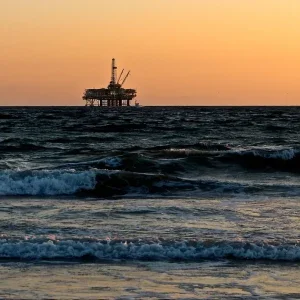
Goldman Sachs Asset Management, through its infrastructure investing business has established Verdalia Bioenergy, a new business focused on developing, acquiring, building and operating biomethane plants across Europe. The investment will aim to contribute to Europe’s decarbonization and energy security agenda, adding significant biomethane production capacity.
Verdalia Bioenergy will be looking to invest in both early-stage development projects and larger operational assets. The Company has already signed its first agreement to purchase, subject to regulatory approval, a portfolio of biomethane projects in mid-stage development in Spain, with total capacity of c. 150 GWh/year. To lead Verdalia Bioenergy, Goldman Sachs Asset Management has partnered with Fernando Bergasa and Cristina Avila, who have a strong track record of value creation and operational excellence in the natural gas sector. Under their leadership, Verdalia Bioenergy aims to become a leading biomethane operator, starting from Spain and subsequently expanding across Europe, and to deploy in excess of €1 billion over the next 4 years.
Biomethane is a negative or low carbon natural gas produced through the anaerobic digestion of organic waste. As a result, it is an effective tool to accelerate decarbonization: it provides the benefits of fossil natural gas without its carbon emissions, while leveraging the large gas infrastructure already in place. The environmental benefits of biomethane are amplified as it prevents methane emissions that could otherwise be released into the atmosphere from the decomposition of organic waste.
According to the European Biogas Association, the current production of biogas and biomethane has already created more than 210,000 green jobs in Europe and is saving 60 million tons of GHG emissions2 (CO2 equivalent) every year, comparable to the annual GHG emissions of Sweden. As such, the sector is set to play a critical role in achieving net zero targets and energy independence. The target set by the EU of 370 TWh of biomethane production by 2030, c.10x today’s production, is expected to require investments of ~€80 billion3. In Spain for instance, Sedigas estimates a biomethane production potential of 163 TWh/year, which could cover as much as 45% of today’s national demand for natural gas4 and a higher share in the future.
Goldman Sachs Asset Management has made numerous landmark energy transition investments including the creation of Japan Renewable Energy (“JRE”), one of the largest Japanese renewables businesses, to address the shift in Japan’s energy policy. The European biomethane market is going through a similar structural change driven by the strong secular trends of decarbonization, circular economy and energy independence.
Tavis Cannell, Global Co-Head of Infrastructure within Goldman Sachs Asset Management, said: “Goldman Sachs Asset Management has a long history of creating and building scaled players within the green energy space. We are excited to contribute to the energy transition bringing much needed biomethane supply to Europe, which will support the continent’s decarbonization and energy security agenda.”
Matteo Botto Poala, Managing Director in the Infrastructure business within Goldman Sachs Asset Management, added: “We believe that biomethane is today one of the most compelling segments in the energy transition for infrastructure investors and look forward to the partnership with Fernando and Cristina on this exciting investment.”
Fernando Bergasa, Executive Chairman of Verdalia Bioenergy, said: “We are excited to work with Goldman Sachs Asset Management on this journey and benefit from their investment experience. Renewable gas will be a key tool for Europe to achieve its commitment to be carbon neutral by 2050. We are looking to acquire mid- to late-stage development projects and operational assets across Europe as we pursue our vision of developing Verdalia Bioenergy into a leading European player in the biomethane industry.”






